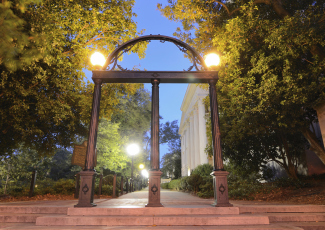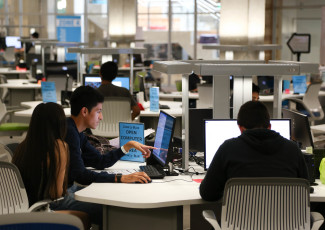More Two-Year Colleges Offering Bachelor’s Degrees
By Corey Murray
March 26, 2014
Twenty-one states have laws that allow community colleges to confer bachelor’s degrees. If a new proposal in California goes through, that number would rise to 22. But, although offering bachelor’s degrees has become an increasingly popular practice at community colleges — and often for good reason — the move raises its fair share of challenges.
It used to be simple: Students who attended community colleges earned associate (two-year) degrees or professional certificates. If they wanted to pursue bachelor’s degrees, students transferred to a four-year institution. For years, this was one — if not the — key differentiator between the two predominant higher education systems.
But as employer demand for graduates with at least a bachelor’s degree heats up, the line between two-year and four-year colleges is blurring. Last year, Michigan became the 21st state to allow community colleges to offer bachelor’s degrees. A proposal now under consideration in California aims to make the state number 22 on the list.
The plan: Proposed by State Senator Marty Block, the bill would carve out eight years for a pilot program, thereby allowing each of the state’s 112 community colleges to offer an applied baccalaureate.
In an interview with EdSource, a California-based education news service and publisher, Block called his proposal “a real win for the state” and said it would allow community colleges to take the pressure off some of their four-year counterparts while offering economically targeted programs that aren’t always available at larger institutions.
According to EdSource, “Although the bill doesn’t designate specific majors” that community colleges might offer, the degrees “would likely be in skilled professions such as nursing, dental hygiene and automotive technology” — all of which have become increasingly sophisticated in recent years.
Why it matters: From health care to IT, more employers desire students who are working toward, or already have, a four-year degree. But as a recent article in The San Francisco Chronicle points out, California does not currently have the bandwidth to meet the increasing demand for bachelor’s degrees across the state.
The paper cites a report from the California Community College Baccalaureate Degree Study Group.
The report states, “To meet the projected demand by 2025, the state would need to immediately increase the number (of bachelor’s degrees) awarded by almost 60,000 per year — about 40 percent above current levels.”
Alone, the state’s four-year colleges have no shot of meeting that demand. But by including community colleges, which educate an estimated 2 million students a year across the state, the goal is in sight.
“This is about workforce preparation,” San Diego Community College District chief executive Constance Carroll, who served on the chancellor’s study group, told The Chronicle. “The universities don’t have programs in many of these areas, and if they do, they lack the capacity.”
The challenge: This wouldn’t be the first time that Block and others have lobbied for the expansion of baccalaureate degrees to two-year colleges. According to EdSource, legislators have tried four times since 2004 to pass such a measure. But the bill has met, and likely will continue to meet, with stiff opposition from state universities and has its share of detractors among community college administrators, who worry that their institutions, many of which are still recovering from historic budget cuts, could be asked to take on more than they can handle.
Across the board, stakeholders agree that the baccalaureate option would force the state’s community colleges to increase the per-credit-hour fee ($46 is the current standard) for participating areas of study. But the cost for these degrees would still be less than a comparable education at a California State University, where tuition averages about $6,000 a year, according to The Chronicle.
Block told the paper he is encouraged by they study group’s report, which recommended that the chancellor and others give the proposal serious consideration. The senator suggested funding for the program could come from a new round of innovation grants proposed by Gov. Jerry Brown in his 2014–15 budget plan, a potential pot of $50 million dedicated to meeting the growing demand for baccalaureate degrees in the state.
A few community college educators have already begun to consider the possibilities. Randy Bryant, instructor and head of the automotive technology program at De Anza College, told EdSource that workers need a higher level of education if they want to compete in the job market.
“Everyone’s heard of the glass ceiling for women in business; the same thing applies to technicians today,” Bryant said. “It used to be an (associate of science) degree was enough to get you into a management position.” But that’s no longer the case. Employers demand more.
Still, not everyone is ready to jump at the idea.
Beth Smith, president of the Academic Senate for California Community Colleges, told EdSource that the proposal has some obvious upsides but cautioned that community colleges should be careful not to lose sight of their founding mission.
“It changes the whole dynamic of what we do,” Smith said of Block’s proposal, “from our admissions offices to our counseling offices to our classrooms.”
What do you think? Should community colleges offer baccalaureate degrees?












